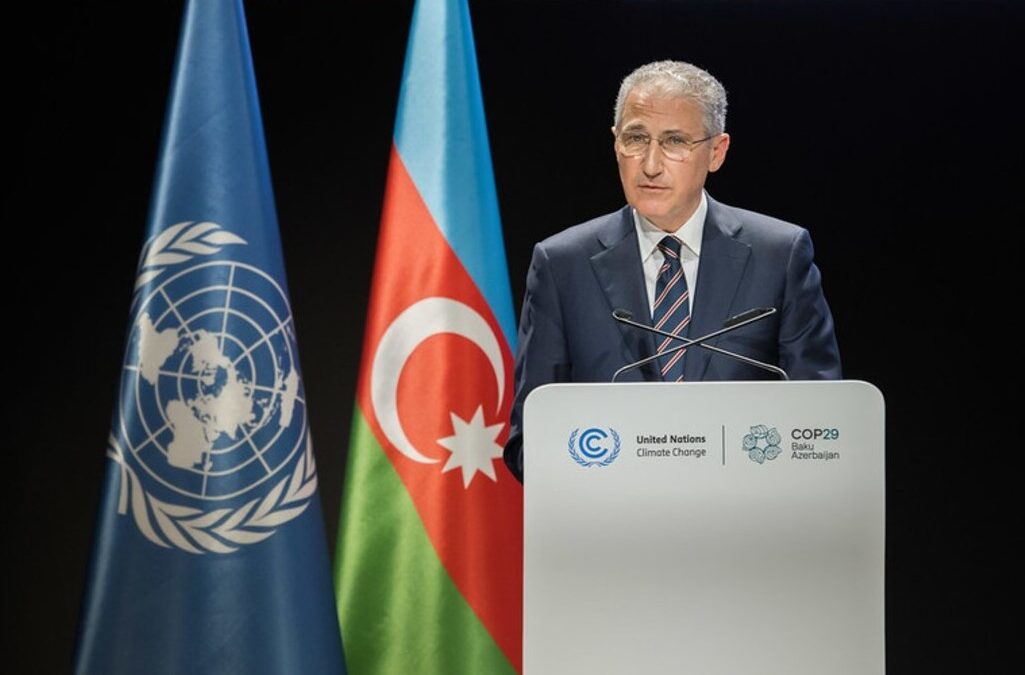World Leaders Unite to Curb Methane Emissions From Organic Waste at COP29
Thirty nations pledge to cut methane emissions from organic waste, tackling a major climate challenge at COP29.
Thirty nations, responsible for nearly half of global methane emissions from organic waste, pledged on Tuesday at the COP29 summit in Baku to reduce these emissions.
The Reducing Methane from Organic Waste Declaration unveiled on Food, Water, and Agriculture Day underscored the urgency of tackling methane to meet global climate goals.
The declaration committed signatories to establish sector-specific methane reduction targets in their future Nationally Determined Contributions.
Seven of the world’s ten largest emitters of methane from organic waste have joined the initiative, marking a milestone in fulfilling the 2021 Global Methane Pledge to reduce methane emissions by 30 percent below 2020 levels by 2030.
“Methane from organic waste represents one of the most actionable opportunities for mitigation,” said COP29 President Mukhtar Babayev. “By advancing policies and roadmaps in this sector, we are driving global efforts to combat climate change in this crucial decade.”
A Unified Front for Food and Climate
The summit also saw the launch of the Baku Harmoniya Climate Initiative for Farmers, a collaborative effort between the COP29 Presidency and the Food and Agriculture Organization of the United Nations or FAO.
The initiative aims to streamline climate action for farmers by consolidating existing programs into a centralized platform that identifies gaps, coordinates funding, and offers accessible resources.
The platform will prioritize empowering rural communities by providing online tools and clear guidelines for sustainable farming practices.
“The Harmoniya Initiative acknowledges the fundamental role of farmers as key agents of change,” said Kaveh Zahedi, Director of the Office of Climate Change, Biodiversity, and Environment at FAO. “This initiative represents an unparalleled opportunity to transform agrifood systems into powerful drivers of climate solutions.”
Azerbaijan Takes the Lead
Further cementing its commitment to climate action, Azerbaijan announced a new partnership between its Ministry of Agriculture and the UNEP-convened CCAC to develop a methane reduction roadmap for its agricultural sector.
The collaboration will focus on innovative strategies in livestock management and waste systems, aligning with the country’s pledge to the Global Methane Pledge.
A Call to Action
Methane, primarily generated from agriculture, fossil fuels, and organic waste, is the third-largest driver of climate change. Its warming potential is more than 80 times that of carbon dioxide over 20 years, making immediate reductions essential.
Martina Otto, Head of the CCAC Secretariat, emphasized the circular economy benefits of methane reduction: “Preventing food waste, improving organic waste management, and keeping food out of landfills can significantly enhance food systems while reducing emissions.”
As the world grapples with the twin challenges of climate change and food insecurity, initiatives like the Reducing Methane from Organic Waste Declaration and the Harmoniya Initiative signal a growing recognition of the interconnectedness of these issues.
With over 50 percent of municipal solid waste composed of organics, the declaration could catalyze transformative change, bringing the Paris Agreement’s goals closer within reach.
Moving Forward
The commitments announced at COP29 set the stage for broader international cooperation in the fight against methane emissions.
As countries begin integrating these targets into their climate plans, the hope is that this momentum will inspire further global action and drive the systemic changes needed to avert the worst impacts of climate change.
“Fast-tracking actions to reduce methane is critical for our planet and our people,” said Otto. “Today’s declaration is a significant step in that direction.”
Also Read:
Baku Initiative Highlights Human Development in Climate Resilience at COP29


